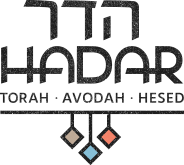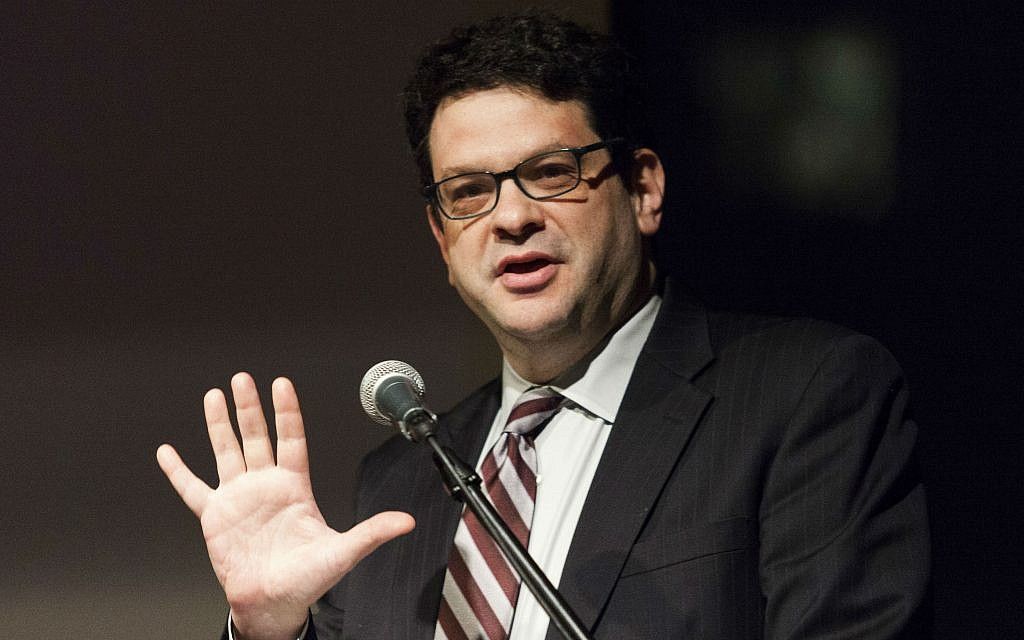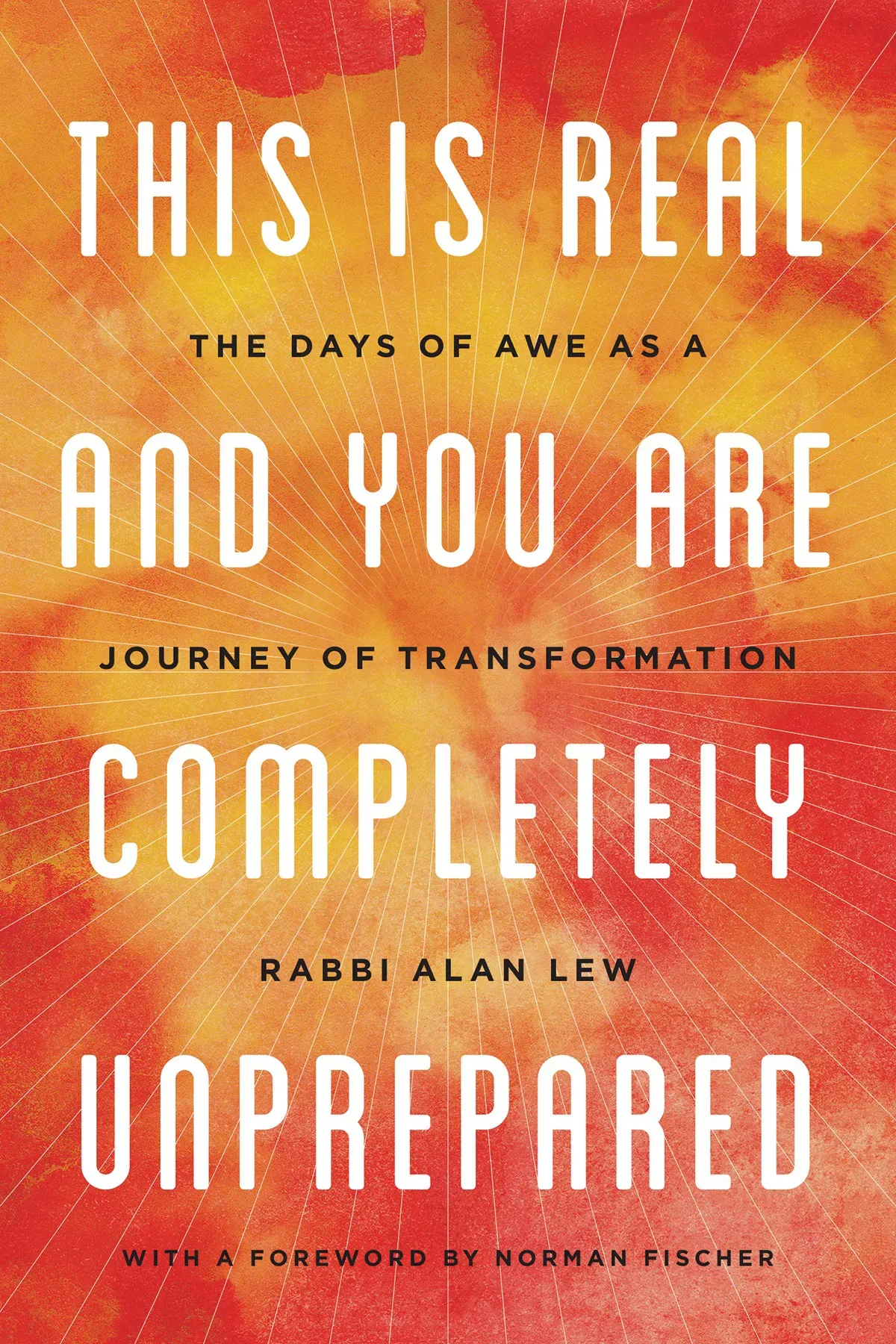Shabbat Gathering: Where to learn: Hadar.

Dear Chevra, as is our custom, we will gather tonight at 5.45p ct to welcome Shabbat. These are the coordinates:
Zoom
Meeting ID: 963 5113 1550
Password: 1989
Phone: +1 312 626 6799
Rabbi Laurie will be away.
(To unsubscribe from the newsletter, click the link at the very bottom of this email.)
Here we go.
By inclination and training, I’ve always been a Torah Study type of Jew and one of the greatest gifts I’ve ever received at Congregation Shaarie Shamayim was from Dorith Steinberg. A couple of years ago, she suggested I try taking classes from an educational organization called Hadar. Since then, I’ve taken more than 30 courses and, with this issue of our newsletter, am highly recommending you take a look if you’re interested in continuing your Jewish education.
About Hadar.
Hadar was founded in 2006 by Shai Held, Ethan Tucker, and Elie Kaunfer. All three are graduates of the Jewish Theological Seminary. Hadar grew out of Kehilat Hadar, an independent Manhattan minyan (Jewish prayer group) unaffiliated with a traditional synagogue or denomination.
One of the many nice things about Hadar is that it has different types of classes for different types of learning experiences. I’m going to focus on the remote learning opportunities as these are the most relevant to us and the only part of the Hadar curriculum I’ve experienced. These remote classes range from traditional lectures to classes that take place between individuals.
The Virtual Beit Midrash.
Hadar’s Virtual Beit Midrash courses are lectures over Zoom that tend to take place once per week. Just to give you an example of the range of classes that are available, I'll describe the two different courses I'm taking.
One course is titled Judaism in the Post-Modern Age: The Writings and Thought of Rav Shagar. Hadar describes the course as an exploration of...
...the writings of Rabbi Shimon Gershon Rosenberg (1949–2007), known by the acronym Shag”ar. Rav Shagar was a leading Israeli thinker, Torah scholar, and teacher and in his work he aimed to address current spiritual, cultural, and intellectual issues. His approach weaves together hasidut, mysticism, and modern and postmodern philosophy.
My experience with the class is a bit mixed but that’s not the fault of the material or the teacher. Rather I have a problem understanding post-modernism.

The other class I’m taking this semester in the virtual beit midrash is led by Rabbi Shai Held, one of the founders of Hadar and author of one of my favorite Torah commentaries, The Heart of Torah. The course is Ethics and Spirituality in Two Twentieth Century Musar Masters.
In this class we'll encounter the writings of Rabbi Eliyahu Lopian (popularly known as "Reb Elyeh," 1876-1970) and Rabbi Chaim Friedlander (1923-1986), two of the most prominent and influential figures in the Musar movement. Through close readings of selections from their works … we'll explore such themes as the centrality of hesed (love; kindness; grace)…
I’m a big fan of Rabbi Held and have learned more about Mussar in just a few classes than I have in several years of independent study.
Project Zug.
The other type of remote classes Hadar offers is through a program called Project Zug. Project Zug focuses on learning in a one-on-one setting. I’ve taken six of these type of classes through Hadar and have enjoyed each one very much. This is the way a Project Zug class is set up:
I select a class. I’m matched with a study partner, my havruta. My study partner might come from anywhere in the U.S. and from any type of Jewish background. The class is conducted through handouts and pre-recorded videos. Once a week, I meet with my study partner and discuss the video and handouts. In every case, I've met someone who has become a friend.
This semester, I’m taking a class called How to Question Authority.
Is there a right way to question authority? Should I speak out on every issue or choose my battles? What role should shame and humiliation play? When can I leverage power-dynamics, and when should I just keep quiet? In this 10-session course we will explore Jewish stories where our ancestors pushed back on the authority of their government and society, of their own Jewish leadership and even of God.
Besides the wide range of classes and the high-quality teachers, it’s important for me to add that the classes are paid for on a donation basis(!).
Beyond the aforementioned “virtual” classes, Hadar also offers in-person classes on its campuses in Israel, New York City, Chicago, Washington D.C., and Boston. These programs range from week-long seminars, to longer, immersive intensives.
For families with children, Hadar has a full complement of learning resources ranging from weekly parsha and holiday programs to individual tutoring.
The Rising Song Institute.
Hadar's Rising Song Institute, led by Joey Weisenberg, is dedicated to growing the grassroots musical creativity of Jews. It is intended to “help reinvent the future of music as a communal Jewish spiritual practice.” Weisenberg is the author of Building Singing Communities (2011) and The Torah of Music (2017). The institute focuses on community-wide singing for all, immersive training for emerging musical-spiritual leaders, and professional content development.
Overall.
I highly recommend Hadar. There's a wide variety of classes. The teachers are smart and great pedagogues (and most of the classes I've taken have been taught by women). The materials are high quality. And the price is right. If you want to know more, check out Hadar's website or contact me directly.
And may it be for all of us a blessing.
See you tonight!
Gut Shabbes!
All my love,
brian.
PS
In two weeks this newsletter will focus on Tisha B'Av and I am reminded that this is the time in the Jewish calendar when I'll start reading This is Real and You Are Completely Unprepared, by Rabbi Alan Lew. You might want to give it a try and I'm giving you plenty of notice.
From Amazon:
There are times in life when we are caught utterly unprepared: a death in the family, the end of a relationship, a health crisis. These are the times when the solid ground we thought we stood on disappears beneath our feet, leaving us reeling and heartbroken, as we stumble back to our faith.

The Days of Awe encompass the weeks preceding Rosh Hashanah up to Yom Kippur, a period in which Jews take part in a series of rituals and prayers that reenact the journey of the soul through the world from birth to death. This is a period of contemplation and repentance, comparable to Lent and Ramadan. Yet, for Rabbi Alan Lew, the real purpose of this annual passage is for us to experience brokenheartedness and open our heart to God.
In This is Real and You Are Completely Unprepared, Lew has marked out a journey of seven distinct stages, one that draws on these rituals to awaken our soul and wholly transform us. Weaving together Torah readings, Buddhist parables, Jewish fables and stories from his own life, Lew lays bare the meanings of this ancient Jewish passage. He reveals the path from terror to acceptance, confusion to clarity, doubt to belief, and from complacency to awe.